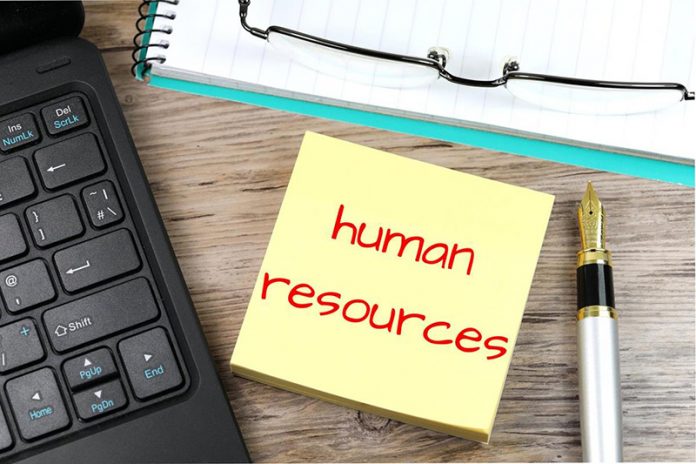By Jessica Day
Your employees are your company’s best assets. Without them, work wouldn’t get done, company growth would be slowed, and customers would be under-served. If you were to take on your employees’ responsibilities, you would also run yourself ragged and possibly face burnout. In short, never underestimate the importance of your employees.
To ensure the needs of your employees are met, part of your focus needs to be on human resources (HR). This is the system by which you manage the people within your organization, from recruitment and employee onboarding to the particulars of their roles in your business.
The chart below relays some of the challenges that fall within the remit of HR.

Below are seven best practices for small business human resources. Consider each one and relate them to the workings of your business.
1. Outsource Or Hire Dedicated HR Personnel
Do you have a dedicated HR team working for your business? If your business is small, it may be that you don’t. In a bid to cut back on spending, many business owners decide against HR personnel, as their primary financial concerns are related to inventory turnover and marketing. However, the role of HR should not be underestimated.
Trained HR personnel have the skills needed to manage specific needs of employees, skills which not all business owners have.
Business owners don’t always have the time to focus on the requirements of their employees either, which is another reason why HR personnel are essential. They can tackle payroll matters, staff disagreements, and other employee-related issues, while the business owner gets on with the other aspects of their own role, such as making more sales and planning out customer service objectives.
Beyond what we’ve already stated, HR staff also deal with benefits administration, staff training, and various matters relating to company culture. If you haven’t hired an HR team already, we hope you now understand their importance. HR can make your work life easier and improve the lives of your employees. So, whether you outsource or employ HR personnel in-house, don’t resent the cost to your business. As they can ensure better employee productivity and employee retention, this will positively influence your ROI.
2. Facilitate Better Communication Between Employees and HR

If you do have a dedicated HR team working for your business, you need to ensure your employees have access to them. There will be times when they need advice related to payroll, business policies, conflict, and other issues related to your workplace, and you won’t always have time to manage these. Therefore, find ways to improve communication with your HR team.
You can do this via a dedicated VoIP number as your employees will be able to call HR from any internet-enabled device. With the same number, they can also send SMS messages and make video calls, so these can be of great benefit when your employees want to interact with HR, even when working remotely.
Another way to facilitate better communication is to build relationships between your employees and your HR team. By arranging meetings between the two, both parties will have a better understanding of one another. Your employees will know what HR can do for them and your HR team will have a better understanding of specific employee needs.
3. Benefit From HR Software
With the right HR software for small businesses, either you or your HR team can streamline and automate the daily tasks that are related to human resource management. Some software programs will cover all HR-related tasks while others will cover specifics, such as anything related to payroll, staff hiring, time tracking, and compliance.
With the right software solution, most tasks can be automated. This means saying farewell to ancient methods of employee management, such as the use of excel spreadsheets and bulletin boards to relay information. As such, processes can be simplified, time can be saved, and the risk of human error can be eliminated.
4. Find Ways to Streamline the Hiring Process
Your nearest rivals will snap up the best candidates that are out there so this is why speed and efficiency are key when considering the recruitment side of human resources. Whether you take on related tasks alone or delegate them to HR personnel, use the appropriate software to streamline processes.
Applicant tracking system software can be recommended as this is an efficient way to keep candidate information organized. Video communication software is also recommended, be it via
Skype or any of the Zoom alternatives that are currently on the market. With such technology, you can stay in touch with candidates and hold face-to-face interviews, with minimal interruption to your or their day.
Consider these other tools that can help streamline the hiring process, such as those that can be used during employee onboarding. With better software in place, you’ll make the life of your new hire easier and reduce the workload assigned to HR personnel.
5. Seek Employee Feedback
One of the main functions of human resources is to make the lives of your employees better. But to be more effective, it’s important to know how your employees are feeling. Do they enjoy coming to work each day? Do they have access to the information they need to do their jobs better? Are there any issues that are causing them stress and worry? You will never know if you don’t ask them.
So, check in occasionally to better understand your employee’s experiences of your company. You can do this via employee satisfaction surveys, one-on-ones with you or your HR representatives, and regular team meetings. By staying in touch with the needs of your employees, you will have more incentives to make changes, such as those related to company culture and any processes that could be considered inefficient.
Of course, employee feedback isn’t only about collecting information related to their needs. It’s about gathering information that could improve the future of your business too. By giving your employees a voice, you will both improve their job satisfaction and gain knowledge that could help to grow your business. Get your employees involved with your business process mapping and work together to improve the core aspects of your organization.
6. Reward Your Employees

A key aspect of human resources management is employee retention. By putting steps in place, you’ll keep your best employees and prevent them from migrating to your nearest competitors.
By improving the onboarding process and by giving your employees opportunities for feedback, you will give them fewer reasons to walk away from your company. Another way to incentivize your employees is by rewarding them.
You can reward your employees by offering them various company benefits, such as discounts on your products and enrollment into employee wellness programs. Be sure to provide recognition for remote employees as well as those on your premises to ensure equality for all team members.
Outside of company benefits, there are also rewards you can offer to your best-performing employees. You could offer them more paid holidays, tickets to shows and sports games, and anything else that is likely to incentivize them to boost their productivity.
7. Create Flexible Work Opportunities
Another aspect of human resources is about managing your employees in ways that improve their performance at work. When it comes to their time at work, that doesn’t have to be within the typical nine to five hours. It doesn’t have to be based on business premises either.
Many companies have also given their employees the option to choose when they work, provided they meet the requirements of their job descriptions.
If your business can allow for more flexible working arrangements, it could improve the productivity of your employees. This is partly because flexibility can lead to a reduction in stress, which will consequently give your employees the capacity to work harder for you.
Could your business allow for such flexible working opportunities? Discuss the ins and outs of this with your HR team or consider the practicalities yourself if managing human resources alone. Speak with your employees too. Find out what works best for them and where possible, make the necessary changes to their working patterns.
Final Word
There’s much to think about when talking about human resources. However, at the core of every best practice, is your employees. Your goal is to fulfill the various needs they have within your business to ensure they’re productive, stay focused, and have the best experience possible during their time at work.
So, relate this back to all of our suggestions here and then work on other aspects of your HR to ensure the needs of your employees are met. By taking the right steps, you will also meet the needs of your business.
About the Author

Jessica Day is the Senior Director for Marketing Strategy at Dialpad, a modern business communications and voice of the customer platform that takes every kind of conversation to the next level—turning conversations into opportunities. Jessica is an expert in collaborating with multifunctional teams to execute and optimize marketing efforts, for both company and client campaigns.




































